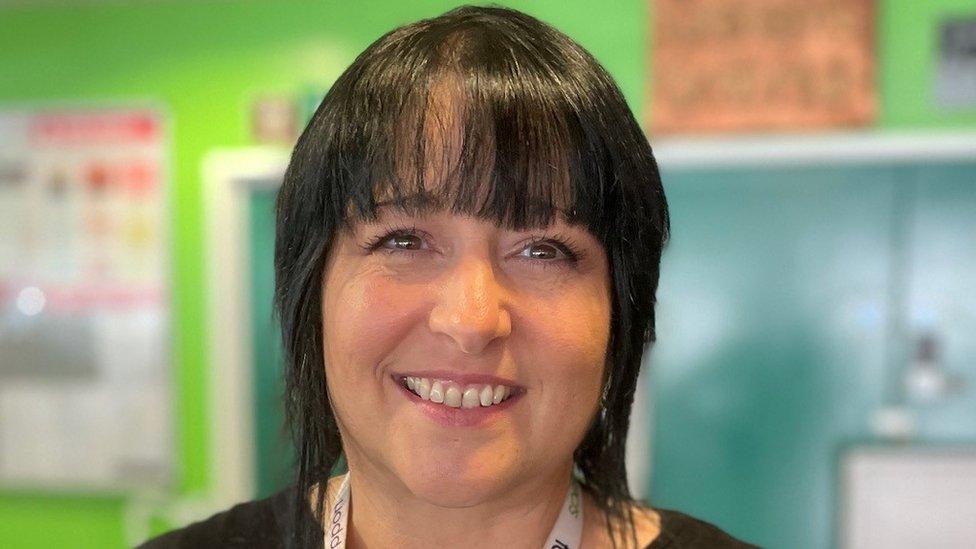Cost of living: How charities are being plunged into crisis
- Published
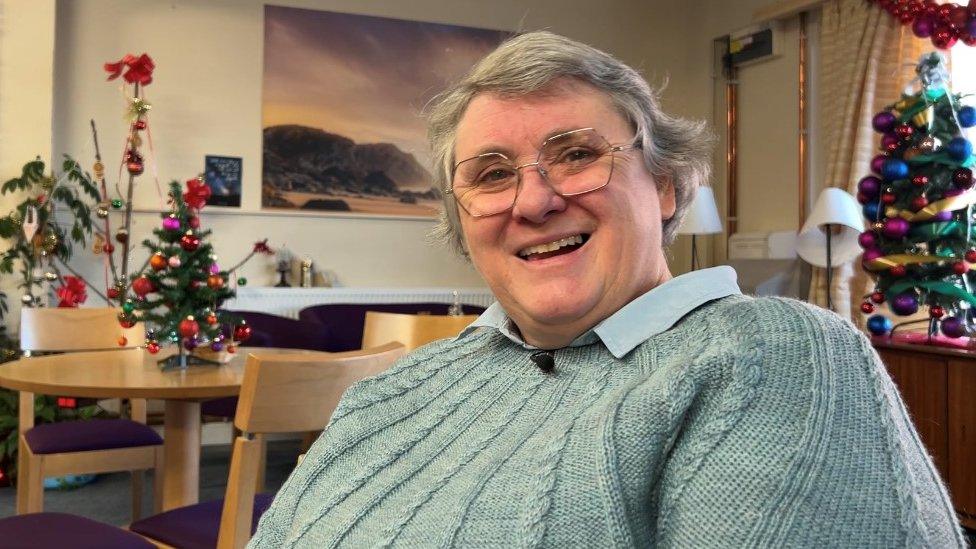
Angela Train runs Love Driffield foodbank in East Yorkshire
It's predicted large numbers of charities will be forced to close in the new year as the charitable sector that provides vital support to those in crisis is now in crisis itself. BBC Look North's Caroline Bilton investigates.
"We've just been donated £5,000 to buy food before Christmas. That means we can fill the warehouse back up," says Angela Train, her eyes filling with tears. "It's a burden gone for this month."
She runs the Love Driffield foodbank in East Yorkshire. She gives more than just her time to this charity. She carries the burden of a community on her shoulders.
But a combination of growing demand, a reduction in donations because of the cost of living crisis and an increase in energy costs is making it difficult for smaller charities like this to stay afloat.
Ms Train says without her team of volunteers, 100 families in the Driffield and Yorkshire Wolds area would go hungry.
Every month the charity spends £10,000 buying food, at cost, from local supermarkets. Food parcels are donated to those in need who are referred to the foodbank by the local authority.
She takes me through to their warehouse. There are 300 blue bags all packed ready to be given out to families to feed them over the Christmas period. They contain pasta, rice, cereals, tins and a few Christmas treats like chocolates.
Ms Train says: "Each bag is a family, and that family wouldn't eat without it."
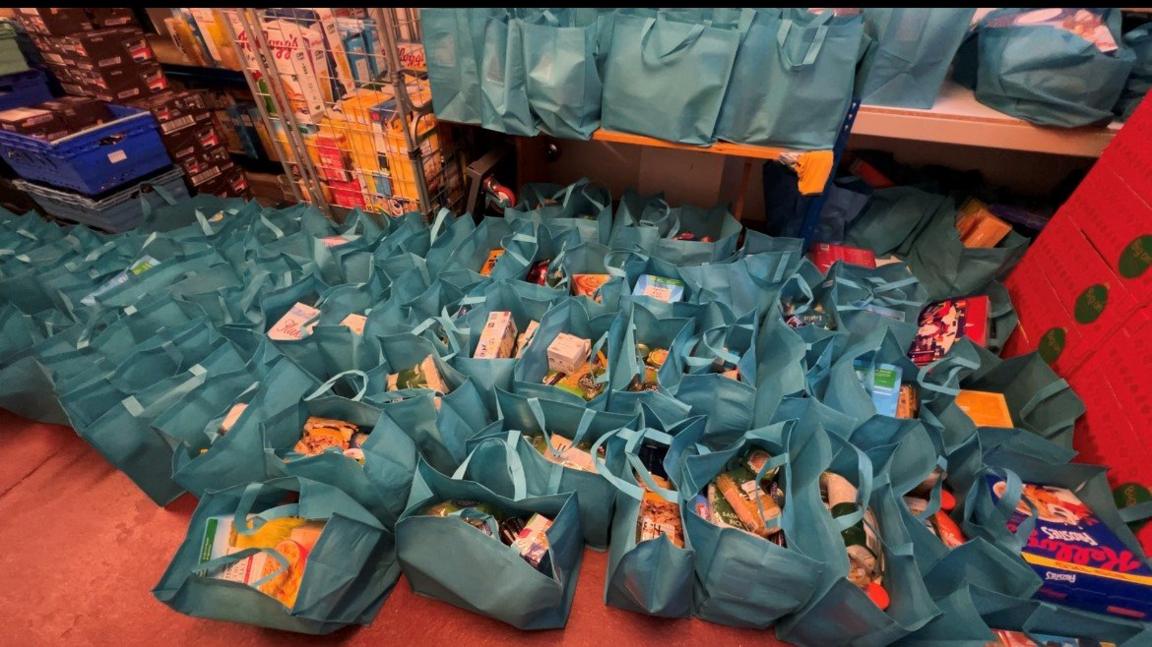
Charities such as foodbanks are struggling to stay afloat
In its nine-year history, Love Driffield has survived mainly on donations from the local community. Ms Train says: "Without the support of the community, you can't do it. We've had four lots of £10,000 [grants] over the last three years but I've just spent £10,000 on a month's food."
I ask her if there is any resilience in the system. She laughs. "Is that a joke?" she asks.
This charity is surviving day by day.
Sian Broughton is chief executive of East Riding Voluntary Action Services, which supports small charities. Her team is dealing with organisations in crisis most weeks.
'Significantly worse'
"We've got a group who has come to us, and they don't know if they can pay their staff at the end of December," she says.
"That's how serious it is. Some of the organisations we are speaking to are facing closure, and we know we are at the start of this crisis.
"Twenty-five per cent of the organisations we are working with are facing significant increases.
"They are not at a state of panic yet, but I foresee that in the next three to four months things are going to be significantly worse for them.
"Unless they manage to find additional funds, they are really going to struggle."
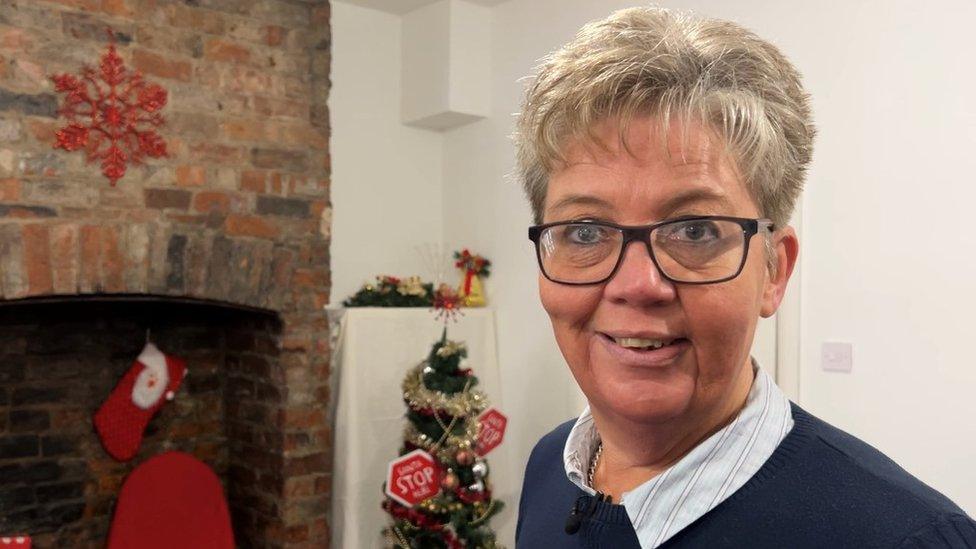
Jayne Nendick, chief executive of Shores Community Centre, is feeling the pressure
In the coastal community of Withernsea, Jayne Nendick, the chief executive of Shores Community Centre, has hold of a giant toy reindeer that will be going in their Christmas grotto at the back of the food pantry set up in lockdown.
"I'm trying to keep the positivity," she tells me. "We've got to keep the community spirit going, and keep smiles on faces."
They help about 1,000 people a month, providing food, warmth and advice.
Back in her office, Ms Nendick paints a painful financial picture. In 17 years she has never applied for external funding; a fact she is incredibly proud of. But the energy bills are rising from £15,000 a year to £50,000 next year. Insurance is rising by 10%. While donations are dropping, demand is increasing.
Ms Nendick runs the charity by day and works into the night writing between 15 and 20 grant applications every month.
I ask her if this charity could survive without grant funding. "No," she replies. "We need that support. At the start of this year, I never thought I would say that.
"For years and years, we have generated our own income but the factors impacting us are beyond my control.
"We are switching things off and trying to save as much as we can whilst at the same time trying to support a community in their time of need."
Funds are coming in, she concedes. But it is "a sticking plaster" on a much larger problem, she explains.
Insolvencies predicted
This pressure is being felt by charities across the UK and grim predictions are being made for the coming 12 months.
Ian McLintock, from the Charity Excellence Framework, which has been gathering data from organisations across the UK, agrees organisations such as food banks and advice centres are struggling, with the crisis set to deepen.
He says: "We think the worst part of the crisis will be the first three months [of the year].
"We don't expect to see any significant recovery until 2024, and we think that we may see significant levels of insolvencies and if a charity becomes insolvent it will not open again after the recession is over."
Mr McLintock says charities "massively underpin the public sector", including social care and health, and warns of dire consequences should they fold.
"If those charities close, that need does not go away. It simply transfers to the public sector."

Follow BBC East Yorkshire and Lincolnshire on Facebook, external, Twitter, external, and Instagram, external. Send your story ideas to yorkslincs.news@bbc.co.uk, external.
Related topics
- Published8 December 2022
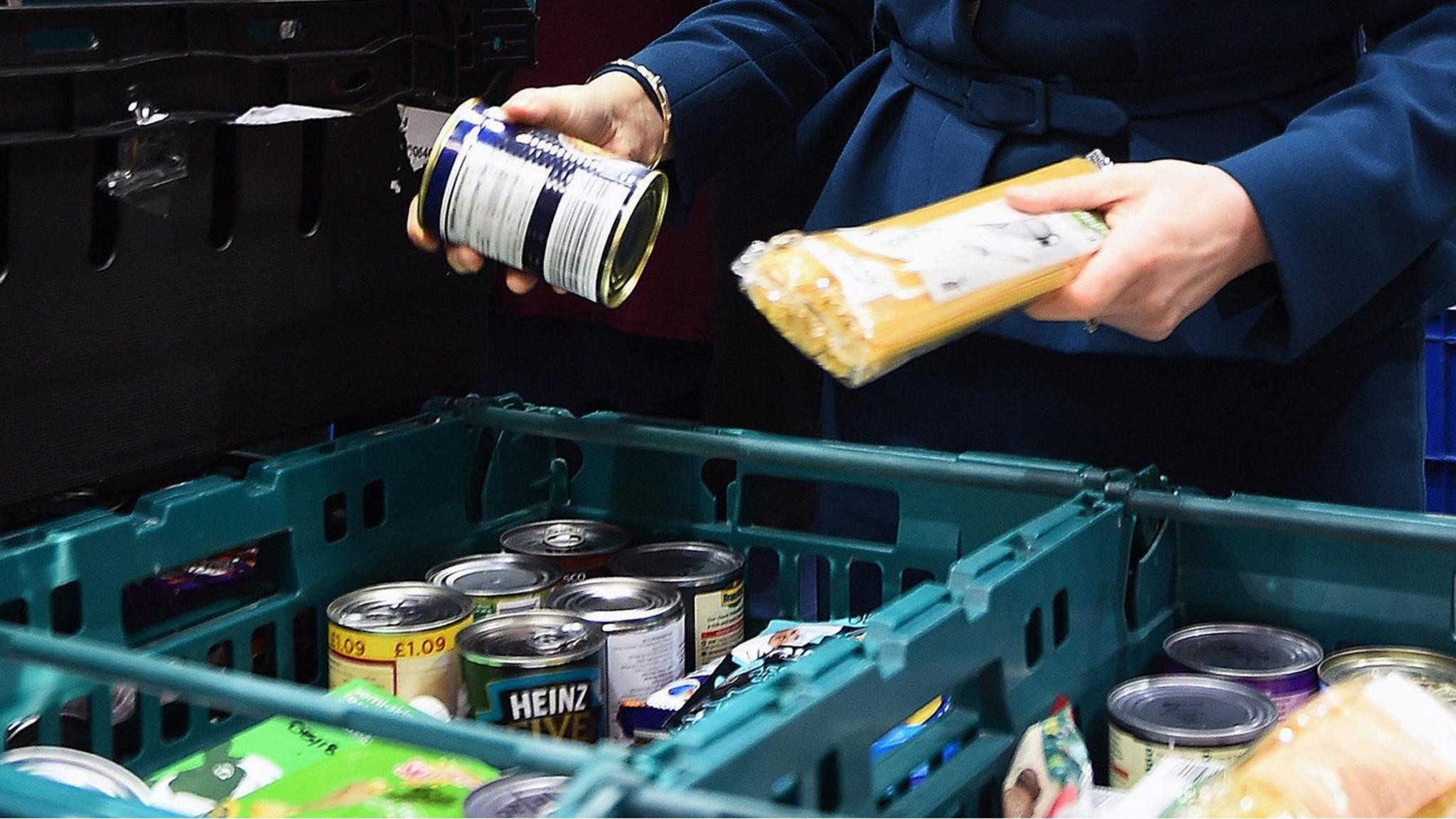
- Published21 October 2022

- Published6 October 2022
